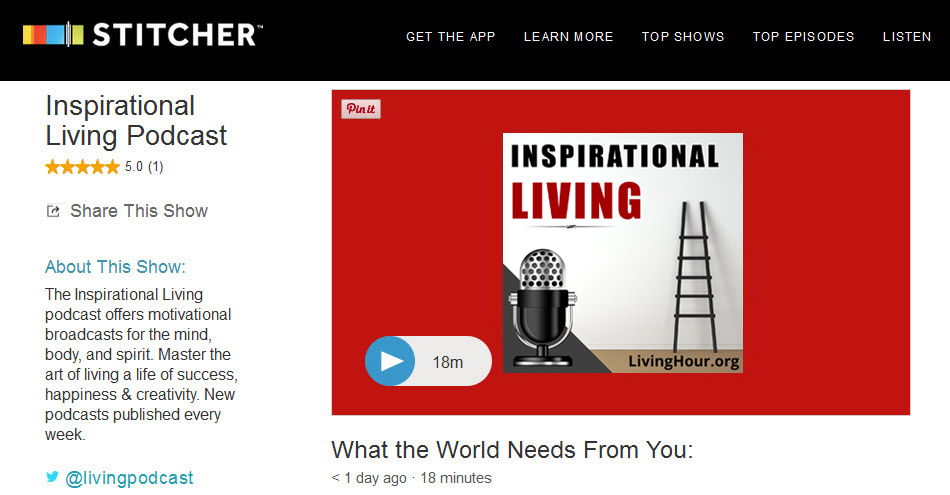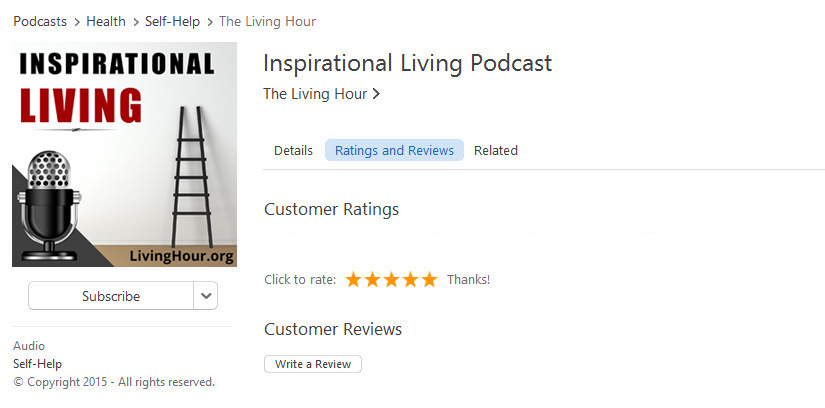15 Jul How to Be a Well Rounded Person | Inspirational Podcasts
Podcast Transcript: Welcome to the Inspirational Living podcast, brought to you in part by Book of Zen, makers of inspirational fashion and gift ideas. Visit them online at BookofZen.com. Today’s podcast has been edited and adapted from Essays On Work and Culture by Hamilton Wright Mabie, published in 1898.
A complete, well-rounded, person is so uncommon that when they appear, they are looked upon with suspicion, as if there must be something wrong with them. If a person is content to deal vigorously with business affairs, and leave art, religion, and science to the enjoyment or enlightenment of others, they are accepted as strong, sound, and wise.
But let them add to practical knowledge, a love of poetry and some skill in the practice of it; let them be not only honest and trustworthy, but genuinely spiritual; let them be not only keenly observant of financial markets, but devoted to the study of some science, and we are left with the impression that they’re interests are somehow superficial.
It is written (apparently), in the modern, and especially in the American, consciousness, that a person can do but one thing well. If he or she attempts more than one thing, they betray the weakness of versatility.
If this view of life is sound, then we are born to imperfect development and must not struggle with fate. We may have natural aptitudes of many kinds; we may have a passionate desire to try three or four musical instruments; we may have a force of vitality which is equal to the demands of several vocations. But we must disregard the most powerful impulses of our nature. We must select one tool, and with that tool, we must do all the work appointed to us.
If you are a business professional, you must turn a deaf ear to the voices of art. If you are a journalist, you must not permit yourself the delight of writing verse. If you cultivate the earth, then you must not seek the stars. If you venture to employ two languages for your thought, to pour your energy into two channels, the awful judgment of superficiality falls upon you like a decree of fate.
So fixed has become the habit of confusing the use of manifold gifts with mere dexterity that individuals of quality and power often question the promptings which drive them to use different forms of expression—as if a person were born to use only one limb and enjoy only one resource in this many-sided universe.
Specialization has been carried out so far that it has become an organized tyranny, creating a curiously perverted view of life. We are permitted these days to cultivate one faculty or master one field of knowledge, but we must not try to live a whole life, or work our nature out on all sides, under penalty of public suspicion and disapproval.
If a Pericles were to appear among us, he would be discredited by the very qualities which made him the foremost public philosopher of his time, one of the most intelligent and gifted people who have yet striven to solve the problems of life. If Michelangelo came among us, he would be compelled to repress his tremendous energy or face the suspicion of the critical mind of the age—for it is not permitted these days to excel in painting, sculpture, architecture, and sonnet-writing.
If, in addition, such a person were to exhibit superior moral qualities, they would deepen the suspicion that they were not playing the game of life fairly—for there are those who have so completely broken life into fragments that they not only deny the possibility of being able to do more than one thing well, but the existence of any kind of connection between character and achievement.
Many people view the world as a mass of unrelated parts: religion, science, morals, and art moving in little spheres of their own, without the possibility of contact. The arts were born at the foot of the altar, as we are sometimes reminded; but let the artist beware how they entertain spiritual ideas today; to suggest that art and morals have any interior relation is, in certain circles, to awaken pity that one’s knowledge of these things is still so rudimentary.
The full podcast transcript for this episode is now exclusively available to our patrons. Become our patron for as little as 3$ a month to gain access to all of our podcast transcripts and the exclusive series Our Sunday Talks. Learn more at: https://www.patreon.com/inspirationalpodcasts.
Subscribe to the Inspirational Living Podcast at iTunes & Stitcher
All transcripts from our inspirational podcasts are edited adaptations of the original work and copyrighted by LivingHour.org. For reproduction permission please contact us via our contact page.


